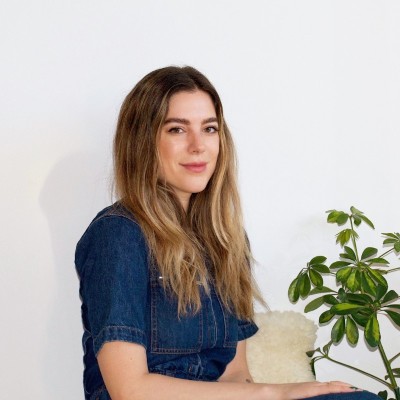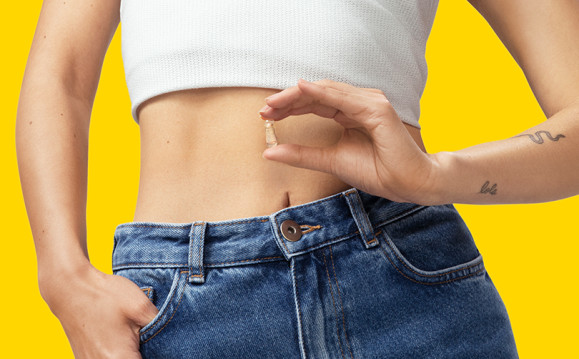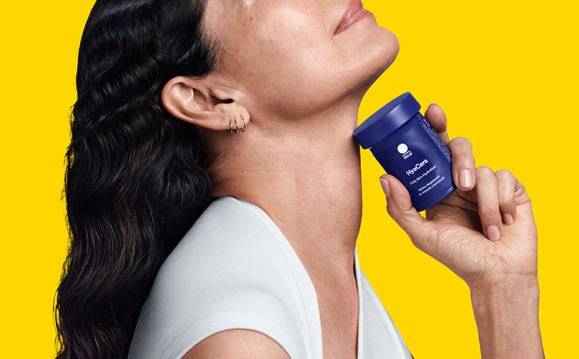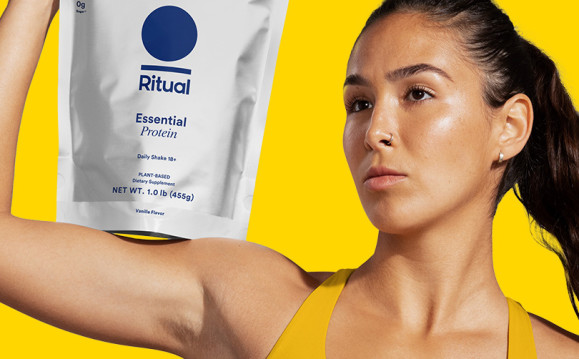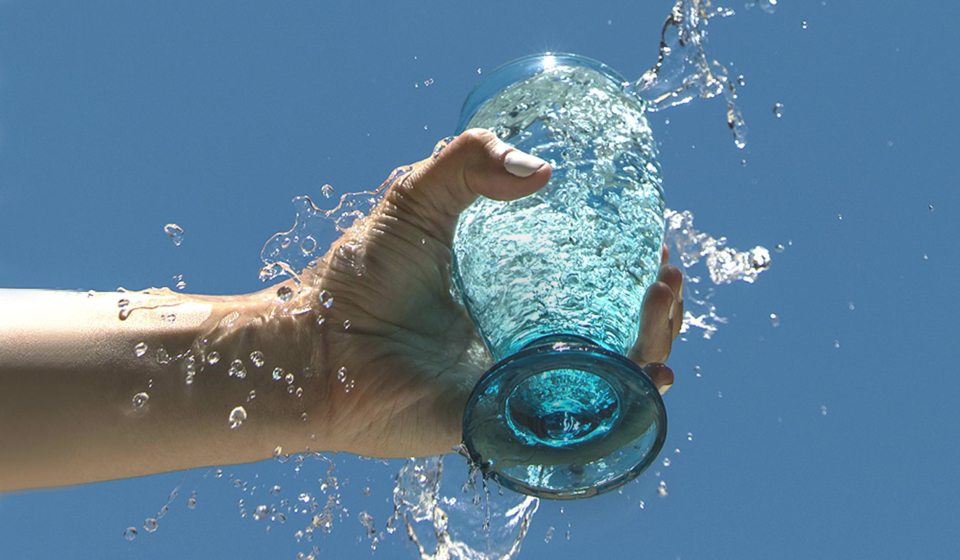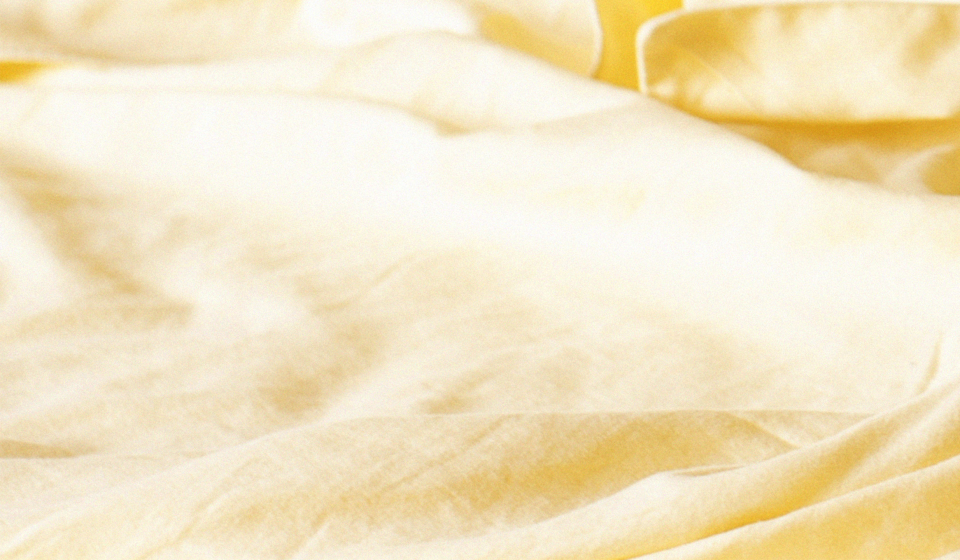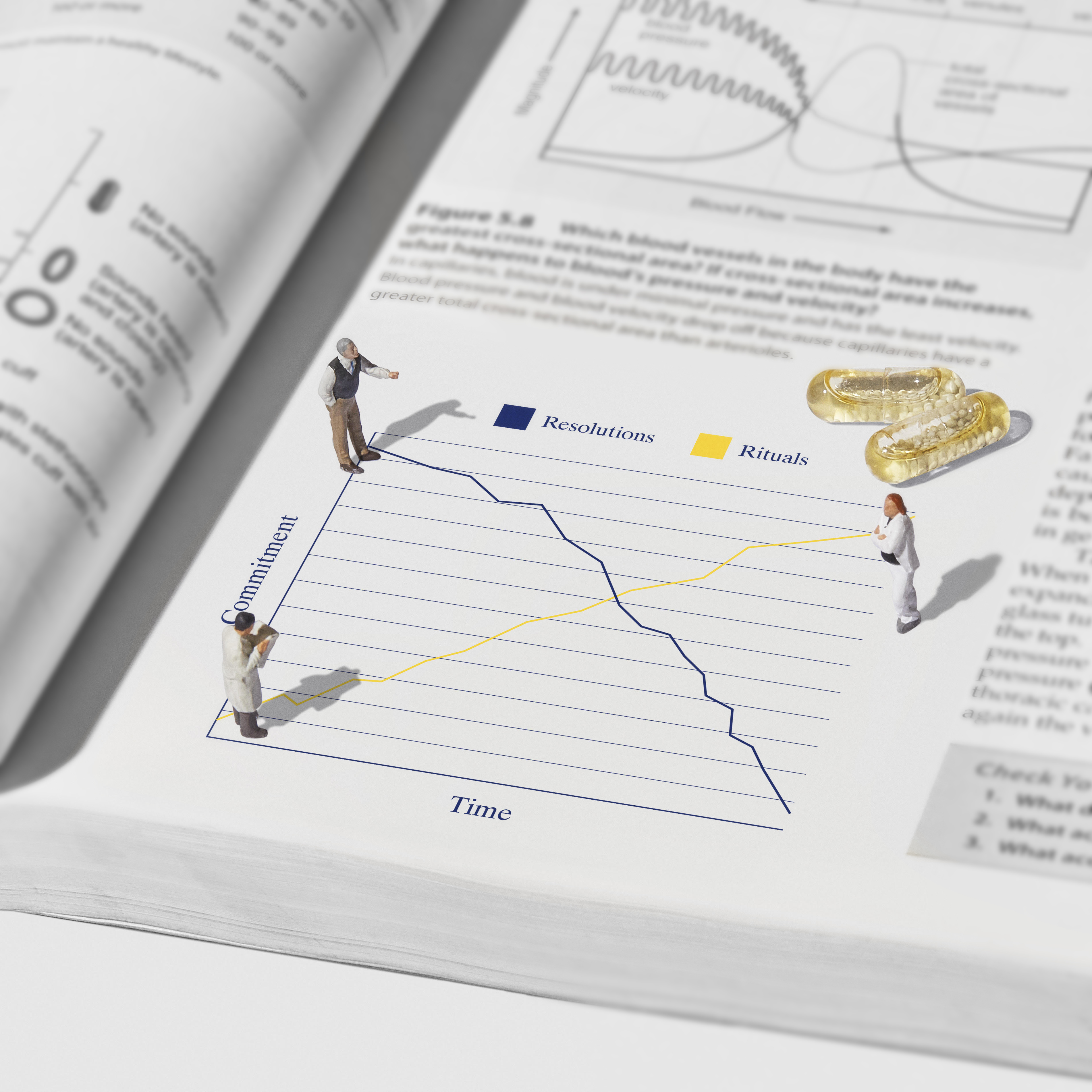
Take your vitamins.
Start small: Set a reminder.
Big impact: Invest in your future.
Setting a reminder on your Apple Watch or sticking a post-it next to your toothbrush might seem pretty inconsequential. But creating a cue is actually the first, very crucial step to forming a habit. When it comes to helping to fill nutrient gaps in your diet, that’s something worth sticking to: Nutrition is key to supporting our health as we move through many different life stages. It’s the perfect example of doing something small for yourself today with your future in mind.
Start a fitness regimen that you’ll actually stick to.
Start small: Aim to move your body for 15 minutes a day.
Big impact: Let the endorphins do the rest.
As hordes of people hit the gym this January with their New Year’s aspirations in tow, might we suggest taking a slightly different approach? The reality is that going from zero to 60 isn’t sustainable when you’re trying out a new routine—especially if it’s not something you particularly like. (In one study, researchers found that those who kept a consistent workout routine had one specific thing in common: They actually enjoyed it.) (2)
This all makes the case for choosing a form of exercise that you know you’ll want to come back to—maybe it’s yoga, or going for a walk, or dancing. Start with a small time commitment (got 15 minutes?), stick with it, and notice how great you feel over time.
Try to be better at unplugging.
Start small: Commit to a phone-free hour every evening.
Big impact: Realize you don’t actually have to check your email every second.
We’ll be the first to say that taking a full-fledged digital detox is totally unreasonable. But there’s also definitely something to be said for regularly unplugging: Overdoing it on your devices can impact everything from eye strain to your overall wellbeing, so it isn’t a bad idea to take some preordained screen-free time every day in the name of self-care.
There are many different ways to go about this—you might try to beat your weekly screen time report, for example, or leave your phone at home when you go for a walk around the neighborhood. The point is to remind yourself that you don’t need to be rifling around your inbox at all hours of the day—and you’ll be amazed at how quickly your dependence on your phone starts to wane.
Find a mentor.
Start small: Reach out to someone you admire.
Big impact: Watch your network (and career!) start to grow.
Even if scheduling a coffee meeting with a potential mentor seems pretty low-stakes, know this: Research suggests that those who have a mentor tend to feel more satisfied in their careers and are compensated better than those who don’t (3).
In addition to expanding your network, there’s something so invaluable about having someone in your corner who can offer unique perspective on your career development, every step of the way—and it all starts with one conversation.
Learn something new.
Start small: Sign up for an online French class.
Big impact: Converse fluently on your next European vacation.
It doesn’t have to be a new language. It might be a ceramics class, or guitar, or a marketing course that can seriously impact your business. Either way, you’re not just building the foundation for something great—research suggests that learning a new skill can actually help mitigate stress, to boot. (4)
Start every morning with a moment for yourself.
Start small: Pick a stretch or breathing exercise that feels really nice to you.
Big impact: Notice changes in your flexibility and overall mindset.
While their routines differ, many of the successful women we’ve spoken to have one thing in common: Before their day truly kicks off and they hit the ground running, taking some quiet time for themselves is a top priority. What that looks like is up to you: Maybe you take your breakfast outside, meditate, stretch, or even engage in some low-lift chores. The point is to log off and tune in, so that your mind gets some breathing room before you start checking things off on your to-do list.
Start a journal.
Start small: Write down an intention for the day.
Big impact: Realize that you’re starting to see things a little differently.
Did you know that the potential health benefits of simply writing your thoughts down are well-documented? The American Psychological Association cites journaling as a great way to reduce your mental load, especially if you’ve been dwelling on stressful events—in other words, putting pen to paper frees up your mind to focus on other things.
And if you’ve struggled with maintaining a journal in the past, know that you don’t have to spend hours on this ritual every day: It might just be a matter of starting with an intention, or a few words of gratitude.
References:
- Norcross, J. C., & Vangarelli, D. J. (1988). The resolution solution: Longitudinal examination of New Years change attempts. Journal of Substance Abuse, 1(2), 127–134. doi: 10.1016/s0899-3289(88)80016-6
- Wienke, B., & Jekauc, D. (2016). A Qualitative Analysis of Emotional Facilitators in Exercise. Frontiers in Psychology, 7. doi: 10.3389/fpsyg.2016.01296
- Ghosh, R., & Reio, T. G. (2013). Career benefits associated with mentoring for mentors: A meta-analysis. Journal of Vocational Behavior, 83(1), 106–116. doi: 10.1016/j.jvb.2013.03.011
- Chen ZhangChristopher G. MyersDavid M. Mayer. (2019, November 26). To Cope with Stress, Try Learning Something New. Retrieved from Harvard Business Review




